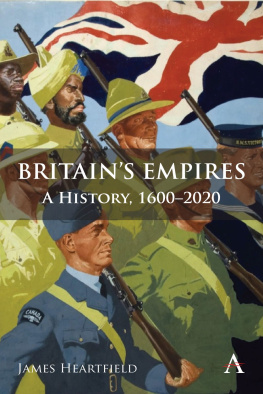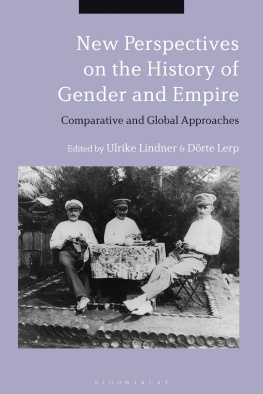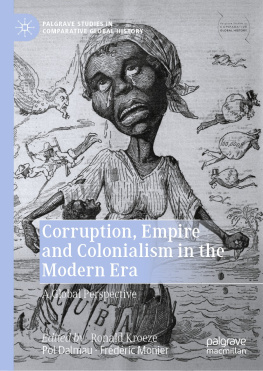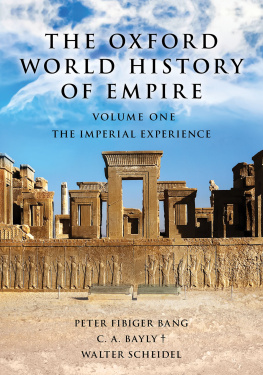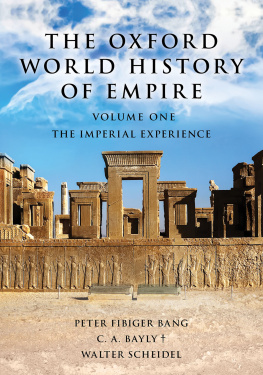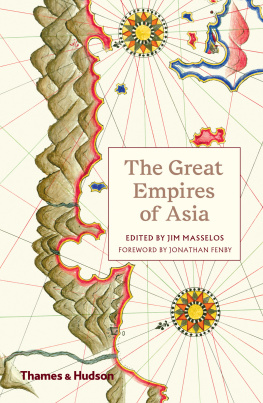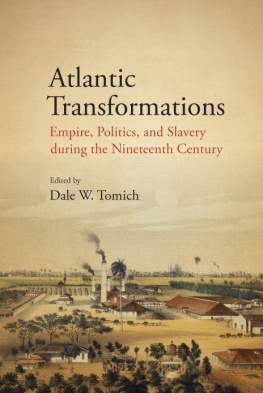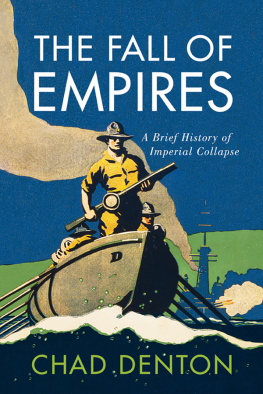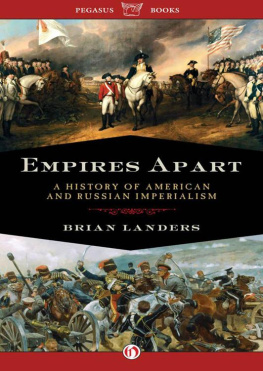Empire: A Very Short Introduction
Stephen Howe
List of illustrations
By courtesy of the National Portrait Gallery, London
The Society of Antiquaries of London
The British Museum
Chri Samba. Courtesy J. M. Patras, Paris
National Archaeological Museum Naples/Archivi Alinari, Florence
Hulton Archive
By permission of the British Library (shelfmark Ms Or 1052 f. 191)
Sonia Halliday Photographs
Corbis
National Maritime Museum, London
Courtesy of the Director, National Army Museum, London
Public Record Office Image Library
Hulton Archive
Courtesy of the Director, National Army Museum, London
Courtesy of the Director, National Army Museum
Peter Magubane
Studio Kahlia
Topham Picturepoint
Hulton Archive
Hulton-Deutsch Collection/Corbis
Popperfoto
Peter Brooker/Rex Features
Jak Kilby
The publisher and the author apologize for any errors or omissions in the above list. If contacted they will be pleased to rectify these at the earliest opportunity. (p. x)
Introduction: I read the news today
Abstract
A great deal of the world's history is the history of empires. Indeed it could be said that all history is imperial or colonial history, if one takes a broad enough definition and goes far enough back. Empire: A Very Short Introduction attempts to say something about the entire history of humanity, from the earliest times and right around the globe. Although the great historic imperial systems have collapsed during the past half-century, their legacies shape almost every aspect of life on a global scale.
A great deal of the world's history is the history of empires. Indeed it could be said that all history is imperial or colonial history, if one takes a broad enough definition and goes far enough back. Since this short book is trying to say something about the entire history of humanity, from the earliest times and right around the globe, the only sensible place to start is with today's newspapers.
Today is a day when I am I hope almost finishing work on this book, 14 February 2002. In a gesture of parochialism which the rest of the book tries to avoid, Ill limit myself to the main London papers of this day; though I can also browse newspapers from all around the world as they appear, with my deplorably limited language skills as the only restriction. This is thanks to the Internet, a communication system which some, perhaps rather overexcited, critics describe as a new kind of global empire. Still, the better British papers carry stories from all round the world and almost all of them seem, in one way or another, to involve the legacies of empires.
For many Westerners, 14 February is St Valentine's Day, when lovers exchange cards and gifts. The custom has, only very recently, become popular in India too. But, one British newspaper reported, activists of the conservative Hindu party Shiv Sena protested bitterly and aggressively against it. The celebration was, they (p. 2) complained, crassly materialistic and immoral. It was an alien cultural import, which had nothing to do with Indian tradition or religion, and indeed threatened them. It was outrageous that young Hindus should mark however irreligiously a day named after a Christian saint. The anti-Valentine zealots of Shiv Sena are not just grouching about a harmless festivity. They are, in their own eyes at least, resisting the forces of cultural imperialism. St Valentine, along with McDonalds, Coca-Cola, Western pop music, and loose sexual morals, is part of a global menace to Indian civilization. Resisting that rather obscure saint's influence is a continuation of India's long anticolonial struggle.
The Guardian's leading story was more sombre. It reported that the United States was planning renewed war against Saddam Hussein's Iraq, with which it had been in intermittent conflict for over a decade. Iraqis, and critics of US policy in general, routinely described its repeated threats and incursions against the Arab state as imperialist, with some alleging that the real motivation was to maintain American-owned multinational companies control over the oil reserves of the region. From another viewpoint it was Iraq, allegedly a permanent threat to its neighbours it had briefly conquered and annexed Kuwait in 19901 which harboured aggressive, empire-building ambitions. And the very existence of Iraq and its neighbours, as well as the location of the borders between them, owed almost everything to the colonial past. They had been carved out from the ruins of the Ottoman empire by Britain and France, in the second decade of the 20th century.
Another fairly direct consequence of the Middle East's brief era of European colonial rule featured heavily in the day's papers, as it had done almost every day in recent months: violence between Israelis and Palestinians. Some, especially in the Arab world, saw Israel's very existence as a colonialist phenomenon. Others blamed Britain, the former colonial power, for its early sponsorship of the Zionist movement. But many Israelis viewed their country's emergence and (p. 3) survival as ananticolonialist story, involving struggle against both British and Arab imperialism.
In Istanbul, the linguist and veteran political campaigner Noam Chomsky best known for his many critiques of American imperialism around the globe won a court case over Turkish government censorship of his writings on the Kurdish problem. This was in many eyes though not in those of Turkish nationalists yet another consequence of empire, in that Kurdish grievances in Turkey and elsewhere stemmed ultimately from their failure to achieve national self-rule when the region's old imperial system broke up in the early 20th century.
For most, though, the dominant international story was the Hague trial of former Yugoslav leader Slobodan Miloovi, accused of war crimes in the Balkan turmoil of the 1990s. The conflicts in which Miloovi played so deadly a role are, on the long view, legacies of the Ottoman and Austro-Hungarian empires, which ruled the region until just over 100 years ago. More immediately, the wars in Bosnia and Kosovo, for whose conduct he was being tried, were ones where every participant from tiny Albania to the American superpower was accused of imperialist aggression by its enemies.
The court where he was tried is, to some, also an imperialist creation. For such critics, the whole idea of universal human rights is actually a gigantic fraud, where Western imperialist or ex-colonial powers try to pass off their own, very specific and localized, idea of what rights should be as universal, trampling roughly over everyone else's beliefs and traditions. The very structure of international law was created in the colonial era, by the colonial powers. It is based on a mixture of Napoleonic, Anglo-Saxon, and before that Roman legal codes, owing nothing much to any non-European idea of legality. But then the legal systems of most ex-colonies, too, are based on those of their former masters.
(p. 4) British Prime Minister Tony Blair had just returned from visiting various former British colonies in Africa. While there, he had urged that more must be done to help resolve those countries endemic problems of poverty and unrest. The opinion pages and readers letters columns of several newspapers carried numerous contributions to an argument the latest of many such exchanges down the years over how far the travails of independent Africa should be blamed on the colonial inheritance, and even whether Africa might be better off if the colonialists returned. Other correspondents, notably in the conservative


